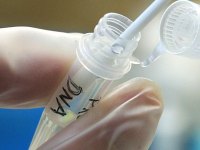 A Feb. 2011 article in The ASCO Post (a newsletter published by the American Society of Clinical Oncology), a common theme emerged from the answers of four cancer experts questioned on the topic “Containing The High Cost of Cancer Care” — the questionable cost-benefit of new anti-cancer drugs being released on the market. Some highlights from the article:
A Feb. 2011 article in The ASCO Post (a newsletter published by the American Society of Clinical Oncology), a common theme emerged from the answers of four cancer experts questioned on the topic “Containing The High Cost of Cancer Care” — the questionable cost-benefit of new anti-cancer drugs being released on the market. Some highlights from the article:
- Sales of oncology drugs have skyrocketed from $5 billion in 1998 to $19.2 billion in 2008
- 90% of cancer-fighting drugs or biologics approved by the FDA over the past 4 years cost more than $20,000 for a 12-week course of therapy, with many offering a survival benefit of only 2 months or less
“The little bit of improvement patients get out of some of the newer drugs comes at an enormous cost, both emotionally and financially. Does the drug cure the patient or just give the patient a few extra months until the disease progresses again? The magnitude of the impact of the drug on the patient is not taken into consideration in pricing….It is the oncologist’s responsibility to help patients understand the magnitude of potential benefit — small or large — and whether there are less costly but equally effective alternatives.” —Lowell E. Schnipper, M.D., Professor of Medicine at Harvard Medical School and Chief of Hematology and Oncology at Beth Israel Deaconess Medical Center
“We have to consider end-of-life health care and how we can use resources most wisely to make sure that individuals in that situation are comfortable and get all the care they need but are not overtreated. Our obligation as physicians is to talk about all aspects of care with our patients. These days, that means the economic consequences, including the cost of drugs and costs in terms of time-for example, time away from work.” —Nancy E. Davidson, M.D., Director of the University of Pittsburgh Cancer Institute
“When you charge $80,000 for a drug that gives a patient an average of 1.2 months survival advantage, that just doesn’t make sense. At some point, we should become smart enough to identify that small percentage of patients in whom the drug would be really effective. Then we’ll be giving these expensive drugs to patients who are getting not 1.2 months, but at least 1 to 2 years’ benefit from them….As a medical community, we’ve got to stress that 1.2 months is a marginal benefit.” —Antonio Tito Fojo, M.D., Ph.D, Senior Investigator and Head of the Experimental Therapeutics Section of the National Cancer Institute
“The drug manufacturers in the United States essentially have no downward pressure on the cost of cancer drugs. They can choose to charge whatever they like. There’s been this long period where manufacturers are getting increasingly bold in terms of the prices they’re willing to charge. One of them comes on the market with a drug with a high price, and no one flinches. Then the next one has no hesitation to charge a similar price.” —Peter B. Bach, M.D., M.PP, Director of the Center for Health Policy and Outcomes and Attending Physician at Memorial Sloan-Kettering Cancer Center
Source: The ASCO Post (2011)
More information: “How much is life worth? The $440 Billion Question” (Journal of the National Cancer Institute, 2009)






Leave a comment